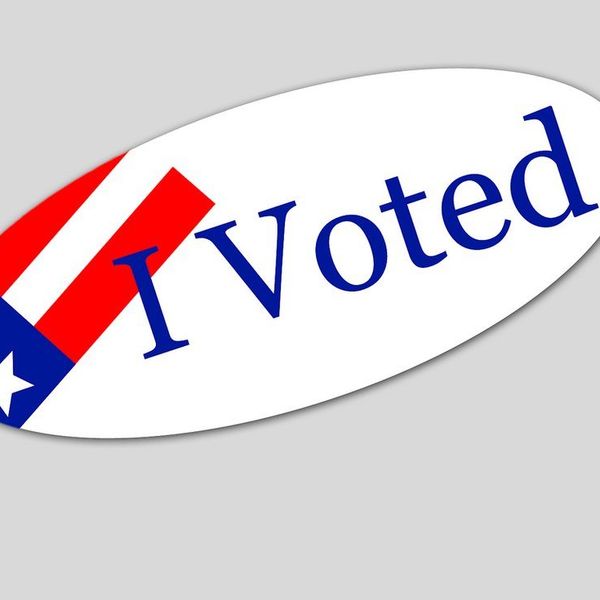Climate change is happening. This much we know. But while might you be gearing up and preparing for the "12 years left" mantra that has been passed around social media since the release of the latest UN report, for many, that twelve years is already up. For millions of low income and marginalized people, climate change is not a far off projection, it is on their doorstep. While citizens of developed nations are preoccupied with purchasing electric cars, reducing their meat intake, and buying carbon credits for their international flights, millions of others are facing the real consequences of climate change. The latest findings show a potential increase of 2 degrees celsius, which might not sound like much to those of us living in moderate climates. For the people living on coasts and in deserts areas however, this is life threatening. Tropical regions are facing sea level rise 15-20% more extreme than the global average, Africa and Middle East are facing severe drought and food shortages, and storms will only increase in severity for those nations already crippled by debt and poverty.
Individual action might be a start for many hoping to contribute to the cause, but climate action ultimately comes down to policy and climate policies and strategies proposed for and by developed nations often miss the mark on fair and equitable climate action. Simply doubling down on emission reductions, subsidizing electric cars, and creating carbon tax policies does not get to the heart of the problem. While Northern nations develop policies that will keep them comfortable in their lifestyles and provide easy options for saving the planet, the rest of the world is already feeling the effects of a global crisis they did not cause. There is a glaring problem in the way we are addressing climate change as a society. Marginalized people have been almost completely left out of the discussion, and when it comes to developing policies to create a sustainable future, this is unacceptable. Climate policies that do not take into account the needs of the majority of the global population do not only worsen existing inequalities, but are unsustainable.
A critical and often ignored aspect of climate change action is climate justice. While traditional climate change activism centers around primarily the environment, climate justice recenters the discussion around people. Climate justice understands the importance and nuances of climate change, and takes a human rights approach to ensure equal sharing of climate change burdens across global populations. The world is already be rife with inequalities in development, race, color, income, and gender, yet climate change only worsens these inequalities. Ignoring these inequalities while developing climate strategies grossly misses the heart of the problem and leads to ineffective and unsustainable policy-making.
We don't have to look far to see these inequalities in action.
Instances like hurricanes Katrina, Harvey, and Maria have all shown that even on US soil, individuals are affected differently based on race, gender, and socio-economic status. Lower class individuals and communities of color are not only relegated to more high risk areas, but have less resilient infrastructure, less emergency response resources, less resources to relocate, and less opportunities to rebuild their lives after disasters occur. A recent study of Houston, TX found that "Census block groups where at least three-quarters of the population is non-white bear an absurd proportion of the city's pollution: 78 percent of closed landfills, 84 percent of carcinogen emitters and 88 percent of hazardous waste sites." These low income and majority black and Hispanic communities are denied the basic resources white neighborhoods are given while being forced to live under unsafe conditions. The presence of storms such as Harvey compound these conditions and worsen the divide between poor and rich, white and black. Similarly New Orleans faced the same divisions, but Katrina was soon forgotten from the public eye. As affected communities begged to be relocated from vulnerable areas, they were met with deaf ears. Continually pushing individuals into higher risk areas as sea level rise threatens more and more communities not only is fundamentally unjust, it is unsustainable. Tackling climate change requires more than running away and rebuilding elsewhere, long term solutions require inclusion and protection of all communities to ensure permanent safety and resiliency.
The most popular strategies for tackling climate change often lie in market based policies which take the pressure off governments and companies to make real tangible change in their culture in favor of performative and often meaningless efforts. Market based policies such as subsidizing electric cars like Tesla, total overhaul and rebuilding of existing infrastructure to make it "eco-friendly," and creation of markets for eco friendly products, while in good faith, do nothing to address the core issues and inequities of climate change. While many of these policies aim to tackle climate change aggressively and quickly, they end up being largely ineffective and even harmful to many due to their oblivious nature.
Strategies like "cap and trade," "carbon taxes," and "carbon offsets" merely provide temporary solutions for the biggest emitters to get away with harmful actions. Cap and trade and carbon tax policies allow companies to buy their way out of ecological debt while still emitting the same if not more pollutants into the atmosphere and environment. One study even found that communities, specifically low income and minority communities, surrounding corporations using cap and trade programs experienced an increase in air and environmental pollution. Other programs such as carbon offsets that claim to improve carbon sequestration through tree planting or other similar actions can actually be extremely harmful to indigenous peoples and locals in developing nations. Large companies seeking to make a profit off the climate crisis take essential and valuable land from indigenous communities plant forests with the intention of conservation and environmental protection, but in the end deeply impact and harm communities. See https://blog.oup.com/2017/04/political-intermediation-environment/
Carbon and climate policies that hurt people not only completely undermine attempts for a equitable future, they also prevent the possibility of a sustainable one.
Bringing morality into the question will not achieve any headway with those only invested in coming out on top. Moral pleas to corporations and politicians are not enough to stir them to action. Under our current economic and political system, the "right thing to do" is not what benefits the most people, but the people with the most to gain. For instance, while the melting arctic might prove disastrous for arctic ecosystems and livelihoods, it also provides a new source of revenue and exploration. Expanded shipping lanes, resource extraction, and national security all are just as relevant to the discussion as saving the polar bears. In order to build effective policy going forward, climate movements and activists need to stop relying on companies and governments to do what is "right". There is no moral argument to win. However, understanding that good and effective climate policy is policy that benefits the majority rather than the minority will lead to much more productive discussions. These conversations then should be approached from the perspective of climate justice.
Climate justice ensures that the fight for climate change keeps the emphasis on people, rather than corporations, governments, or the environment exclusively. Climate action networks that emphasize climate justice are more robust, comprehensive, and effective in the end. People's Climate March, The Green New Deal, and other movements that have put climate justice at the forefront are redirecting the narrative and strengthening the overall climate change movement. In order for climate policies to be effective, they need to benefit not only an elite few, but everyone. Going forward, tackling climate change will require a consideration of global inequalities and disparities which have led to the creation of climate change in the first place.
This essay was written as part of the public engagement component in partial fulfillment of the course POLS 3240: Climate Justice at the University of Connecticut.



















